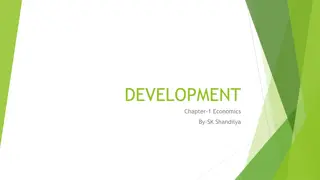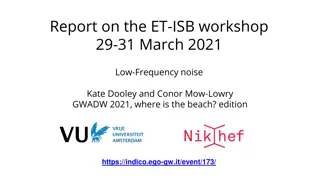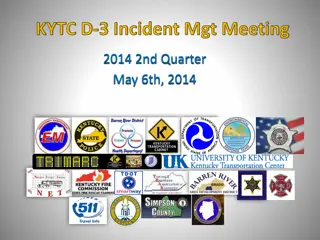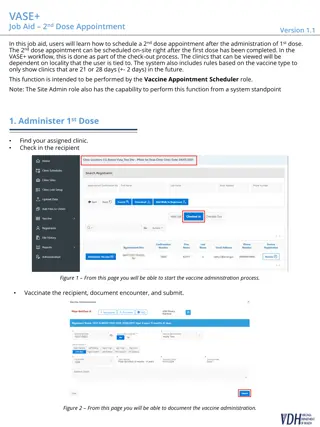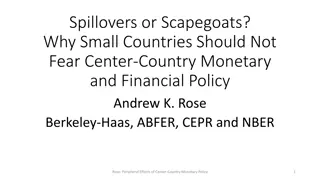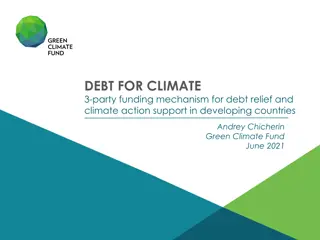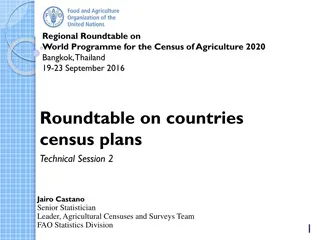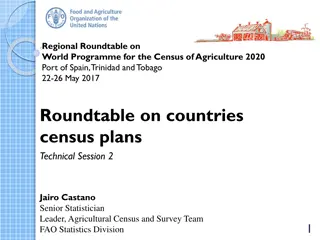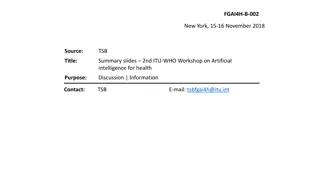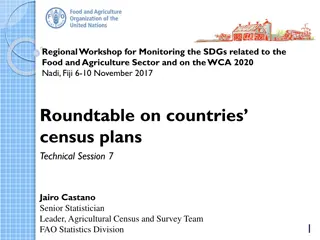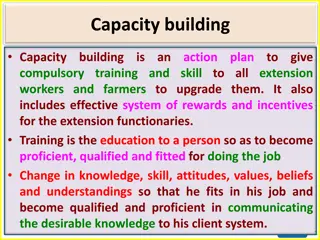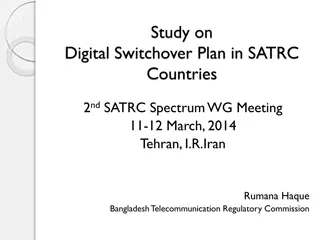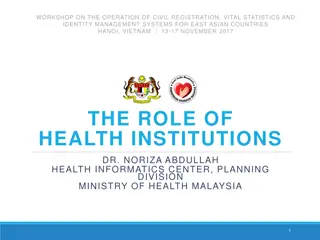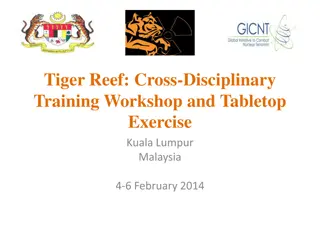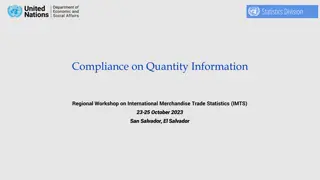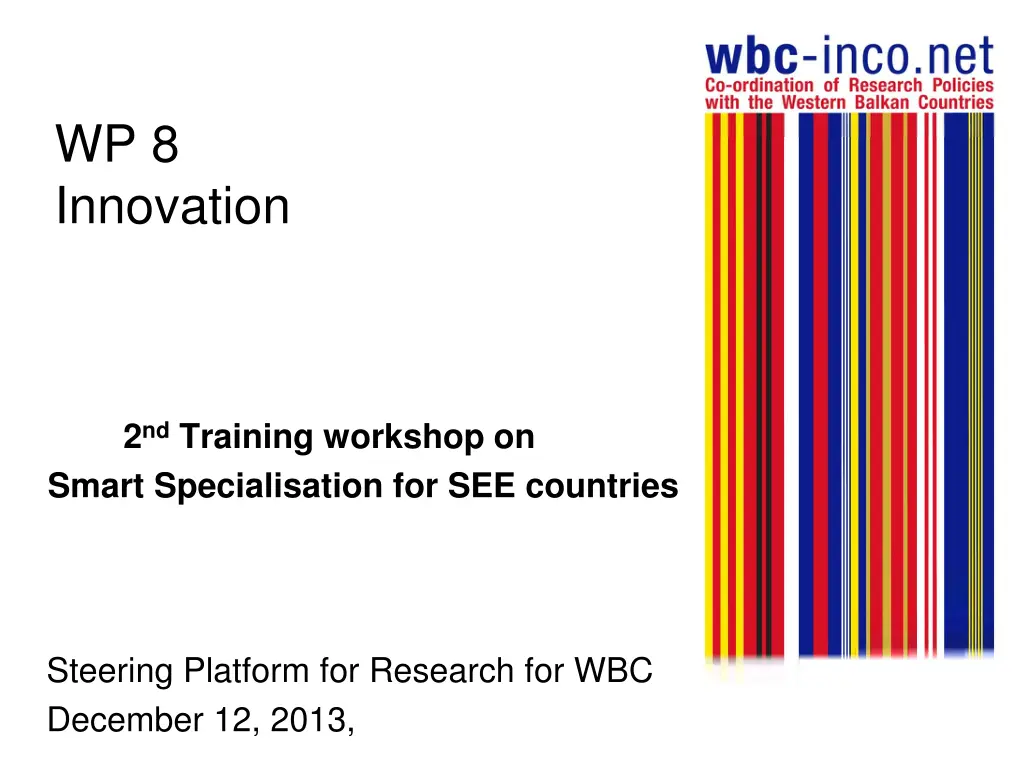
Fostering WBC Regional Innovation Through Smart Specialisation
Explore how the Smart Specialisation concept is utilized to foster regional innovation in South East European countries, focusing on experiences from workshops, pilot projects, and strategy development. Key topics include RIS3 assessment, case studies, stakeholder meetings, and synergy creation among neighboring countries.
Download Presentation

Please find below an Image/Link to download the presentation.
The content on the website is provided AS IS for your information and personal use only. It may not be sold, licensed, or shared on other websites without obtaining consent from the author. If you encounter any issues during the download, it is possible that the publisher has removed the file from their server.
You are allowed to download the files provided on this website for personal or commercial use, subject to the condition that they are used lawfully. All files are the property of their respective owners.
The content on the website is provided AS IS for your information and personal use only. It may not be sold, licensed, or shared on other websites without obtaining consent from the author.
E N D
Presentation Transcript
WP 8 Innovation 2ndTraining workshop on Smart Specialisation for SEE countries Steering Platform for Research for WBC December 12, 2013,
Task T8.3 b) Fostering WBC Regional Innovation by using the Smart Specialisation concept 2nd Training Workshop on Smart Specialisation for South East European countries Held in Skopje, on November 20-21, 2013 Built upon experience from the 1stTraining workshop held in Belgrade in April 2013 Republic of Macedonia was selected as a pilot country Initial RIS3 Assessment was prepared prior to the workshop and discussed during the workshop 25 participants. Per WBC country: Republic of Macedonia: 12, Montenegro: 2 Albania: 2, Slovenia: 1 Croatia: 1, Bosnia: 1, Kosovo*: 1
Task T8.3 b) Fostering WBC Regional Innovation by using the Smart Specialisation concept Initial RIS3 Assessment document development Based on Getting started with the RIS3 Key guide produced by Joanneum Research and the Austrian Federal Ministry of Science and Research. Contents: ASSESSMENT OF THE STATUS AND POTENTIAL OF THE ENTERPRISE SECTOR ASSESSMENT OF THE STATUS AND POTENTIAL OF THE SCIENCE, KNOWLEDGE AND CREATIVE SECTOR ASSESSMENT OF THE GOVERNMENT SECTOR ASSESSMENT OF THE SMARTNESS OF THE REGIONAL INNOVATION AND GROWTH POLICY FRAMEWORK SWOT ANALYSIS CONCLUSIONS
Task T8.3 b) Fostering WBC Regional Innovation by using the Smart Specialisation concept Sources: Secondary data (various studies and analyses, including WBC-INCO.NET deliverables) Data from the Statistical Office Web of Science (publications) FP7 participation data Official governmental strategy documents and laws Meeting with stakeholders from the enterprise sector (held at Skopje on October 20, 2013)
Task T8.3 b) Fostering WBC Regional Innovation by using the Smart Specialisation concept Presentation of S3 case studies: Case study Slovenia: Bo tjan Udovi University of Ljubljana Case study Estonia: Katre Eljas-Taal, Technopolis group Case study Croatia: Marijana Bolari kare, Ministry of Economy, Republic of Croatia Discussion: How RIS3 strategies of neighboring countries can create synergies and multiplying results? Presentation of the Innovation Strategy for the WBC as adopted on October 25, 2013 (World Bank Project). Discussion: How the Strategy interacts with the S3 preparation of WBCs
Task T8.3 b) Fostering WBC Regional Innovation by using the Smart Specialisation concept Summary of conclusions from the 2ndS3 training workshop: Very good and participation in the discussions and engagement through the practical exercise Challenges for WBCs are not very different than the countries presented as case studies, i.e: Lack of cooperation between the science and enterprise sector, Difficulty in defining priorities, Brain drain, etc The RIS3 process represents a novelty that needs a quite different approach in defining policies. The main challenge is the active engagement of the stakeholders and the real buy-in of the resulting policies.
Outlook T8.3b): Initial RIS3 Assessment document to be finalized Input during the workshop (SWOT analysis) and conclusions this document may be used as a basis for future undertaking of a full RIS3 exercise Deliverables: D8.59 (T8.3)* Initial RIS3 Assessment of a selected WB country or region m72, responsible SEERC D8.60 (T8.3) Proceedings of a joint WBC-INCO.NET and WB Team workshop on Regional Innovation and Smart Specialisation m74, responsible SEERC
THANK YOU, Marina Nikolovska Ministry of Education and Science Republic of Macedonia



